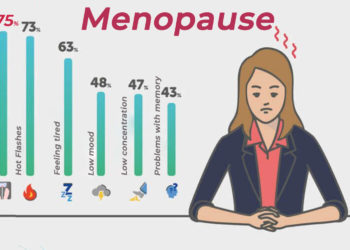How to keep your New Year’s resolutions 2025 on weight loss?
New Year’s resolutions have a special power. They symbolize a fresh start, a time for setting ambitious goals, often related to health, well-being and fitness. Among the most popular resolutions is weight loss. However, the vast majority of these resolutions are quickly forgotten or abandoned at the first sign of difficulty. So what can you do to avoid the temptation to give up? In this article, we’ll explore some practical strategies for maintaining your weight-loss resolution, while adopting a low-carb diet, incorporating nutritional variety and, above all, still enjoying your food.
Understanding the psychology of resolutions

It’s important to start by understanding why the majority of people abandon their weight loss resolutions. There are several psychological reasons for this:
- Unrealistic expectations: Many people set overly ambitious weight-loss goals, such as losing a large number of kilos in a short space of time. These goals can quickly become demoralizing if results are not immediately visible.
- Lack of motivation: At the beginning of the year, enthusiasm is high, but over time motivation can wane, especially when results don’t come as quickly as expected.
- Mental and physical fatigue: sticking to a strict diet, rather than enjoying it, can lead to fatigue. The boredom and frustration associated with dietary restrictions can lead to a loss of interest.
- Social temptations: Family dinners, parties and social events are often occasions for indulgence, which can set back months of hard work.The secret to overcoming these obstacles lies in a balanced approach that combines realistic objectives, sustainable motivation and flexibility.
The low-carb diet: a sustainable strategy

The low-carb diet has become a popular method of weight loss. By limiting carbohydrate intake, the body uses more fat as an energy source, which can accelerate weight loss.
However, for this approach to be effective and sustainable, a balanced approach is essential.
How does a low-carb diet work?
A low-carb diet consists of reducing carbohydrate intake, mainly from cereal products, potatoes, sweets and sugar-rich fruit. By limiting carbohydrates, the body enters a metabolic state called ketosis, where it burns fat to produce energy. This can lead to rapid weight loss at first, motivating people to continue their diet.
However, a low-carb diet does not mean the total elimination of carbohydrates. Complex carbohydrates, found in vegetables, legumes and certain fruits, should be favored. These carbohydrates are rich in fiber and nutrients, which promote digestive health and general well-being.
The benefits of a low-carb diet
- Rapid weight loss: By reducing carbohydrates, the body has less energy reserves in the form of sugar, and makes greater use of stored fat.
- Stabilizing blood sugar levels: A low-carb diet can help stabilize blood sugar levels, which is particularly beneficial for people predisposed to diabetes.
- Reduced cravings: By consuming more protein and fat, you can reduce the urge to snack, as these nutrients are more satiating.
- Improved mental clarity: The brain can use the ketone bodies produced during ketosis as an energy source, which could improve concentration and memory.
How do you maintain a low-carb diet over the long term?
For this approach to be sustainable, it’s crucial not to adopt an overly restrictive attitude. Here are a few tips on how not to give up on this low-carb diet:
- Start gradually: If you’re used to eating a lot of carbohydrates, reduce them gradually. This allows your body to adapt and reduces the risk of severe cravings.
- Vary your protein and fat sources: Don’t limit yourself to a single protein source (such as meat). Explore different options, such as eggs, fish, tofu, legumes and nuts. When it comes to fats, opt for healthy fats such as olive oil, avocados or oilseeds.
- Don’t neglect vegetables: Low-carbohydrate vegetables, such as spinach, zucchini, broccoli or peppers, should be an essential part of your diet. They provide vitamins, minerals and fiber without adding too many carbohydrates.Nutritional variety: a key factor in not giving upWhen it comes to diets, monotony is often one of the biggest enemies. Eating the same thing every day can make any diet boring, increasing the risk of giving up. To stay motivated, it’s essential to include plenty of nutritional variety in your diet.Diversity of nutrient sourcesEven on a low-carb diet, there are plenty of tasty and varied foods that can enrich your diet. It’s important to diversify your meals according to the following food groups :
- Protein: lean meat, fish, eggs, tofu, tempeh, protein-rich dairy products.
- Fats: avocados, oilseeds, seeds, quality vegetable oils (such as olive or walnut oil).
- Vegetables: green vegetables (spinach, broccoli, zucchini), root vegetables (turnips, carrots), mushrooms.
- Low-carb fruits: berries (strawberries, raspberries, blackberries), citrus fruit.
This diversity not only keeps meals interesting, but also ensures that you get a wide range of vitamins and minerals essential to your health.
Get help
It is difficult to cook every day healthy food, take care of your family and career, especially when people sharing your life have different nutritional needs. Liberate couple of dinnes during the week, by ordering low carb meals from Allcook kitchen, designed bu chefs and nutritionist for you to keep going along your weight loss journey, succeed and keep the wight off.
Allcook kitchen Low carb meals

Enjoying food
Food pleasure is fundamental to mental and emotional well-being. To ensure that your low-carb diet doesn’t become a constraint, it’s important to keep it pleasant and indulgent. Here are a few tips:
- Tasty recipes: There are plenty of creative recipes that allow you to reduce carbohydrates while maintaining delicious dishes. For example, squash- based purees or cauliflower-based couscous can satisfy your cravings while remaining low-carb.
- Cooking with spices: Herbs and spices add flavor without unnecessary calories. Experiment with spices like turmeric, ginger, paprika, garlic or thyme to enhance your dishes.
- Don’t deprive yourself completely: If you have an irresistible craving, allow yourself a little indulgence. Balance, not perfection, is the key to keeping your resolutions in the long term.
Managing obstacles and staying motivated
Finally, it’s crucial to develop a resilience mentality. Obstacles will come your way, but they shouldn’t be seen as failures, but as opportunities to learn and adapt your plan.
Set realistic and measurable objectives
Rather than aiming for spectacular weight loss, focus on small, achievable goals: losing 1 or 2 kilos a month, improving your general well-being, or increasing your energy. These small victories will boost your motivation.
Tracking progress
Keep track of your progress by writing down your meals, workouts and feelings. Use food tracking apps or journals to record your successes and identify areas where you can improve.
Surround yourself with support
Social support is essential to keeping your resolutions. Share your goals with friends or join online groups to exchange recipe ideas and tips.
Conclusion
Not giving up on your New Year’s resolutions on weight loss is possible thanks to a pragmatic approach, based on a balanced low-carb diet, a wide variety of foods and the search for pleasure in every meal. By combining these elements with healthy expectation management and a positive attitude to obstacles, you’ll increase your chances of long-term success. Remember, the key is balance and perseverance.
References :
https://newatlas.com/health-wellbeing/low-carbohydrate-diets-weight-loss https://www.hsph.harvard.edu/news/press-releases/low-carbohydrate-diets- emphasizing-healthy-plant-based-sources-associated-with-slower-long-term-weight-gain/
https://www.health.harvard.edu/blog/weight-loss-for-life-the-dietfits-study- 2018040913595




